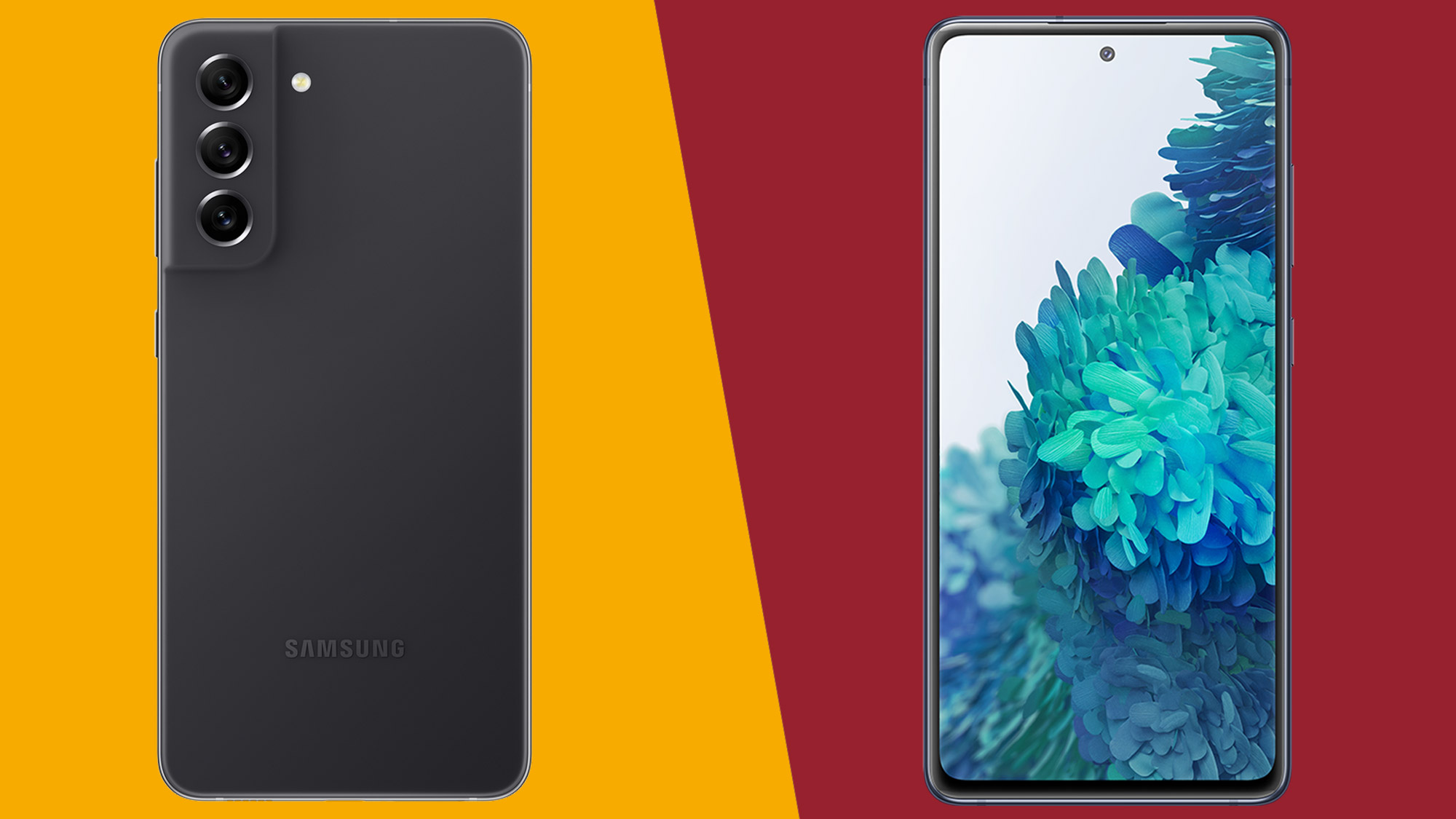
The Samsung Galaxy S21 FE is finally here, after a huge delay and a frankly ludicrous number of leaks. It’s a phone that feels curiously out of sync, with the Samsung Galaxy S22 series right around the corner.
All of which stands in stark contrast to the Samsung Galaxy S20 FE, which seemed to arrive at just about the perfect time to blaze a new trail for thoughtfully remixed affordable flagship phones.
All of which sets up a tantalizing face-off. Which of these two ‘Fan Edition’ phones is the better buy as we head deeper into 2022?
Samsung Galaxy S21 FE vs Samsung Galaxy S20 FE price and availability
There’s no getting around it, the Samsung Galaxy S21 FE was seriously late to the party, and not in a fashionable way. It arrived around five months after it was expected, and a whopping 11 months after the rest of the Galaxy S21 range.
Prices start from $699 / £699 / AU$999 for 6GB RAM and 128GB storage, and there’s also an 8GB RAM and 256GB storage model for $769 / £749 / AU$1,099. This feels a little expensive given its inherently dated nature, not to mention the availability of mid-range phones like the Realme GT, Moto G200, Pixel 5, and the OnePlus Nord 2 for a lot less money.
The Samsung Galaxy S20 FE landed on October 2, 2020. Prices started at $699 / £699 / AU$1,149 for the 5G model, while in the UK and Australia a 4G model was also made available for £599 / AU$999.
Samsung still sells the phone brand new, with the 128GB model costing £499 in the UK, and just $350 in the US at the time of writing.
Get daily insight, inspiration and deals in your inbox
Sign up for breaking news, reviews, opinion, top tech deals, and more.
Design
The Samsung Galaxy S21 FE looks a lot like its Galaxy S21 brothers, with the same distinctive ‘Contour Cut’ camera bump. However, that bump is made of plastic in the FE, rather than metal.
In a similar way, the Galaxy S20 FE looks a lot like the Galaxy S20 range, but with a good deal more plastic.
In both cases, Samsung has gone with a pure ‘Glasstic’ body, which is a round-about way of saying plastic with a vaguely glass-like finish. Both phones feel a little cheap in the hand as a result, even if they are suitably tough.
Both benefit from IP68 ratings, which make them just as water and dust proof as flagship phones.
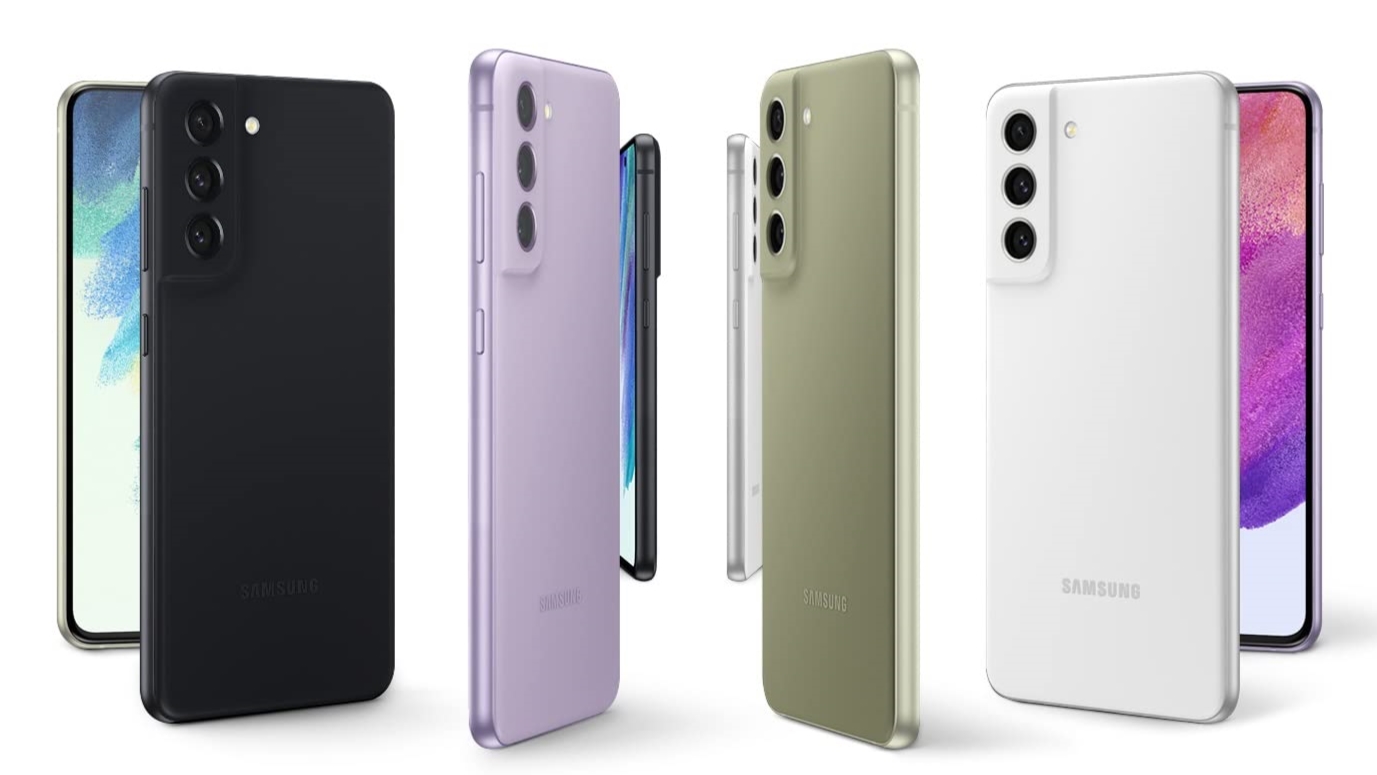
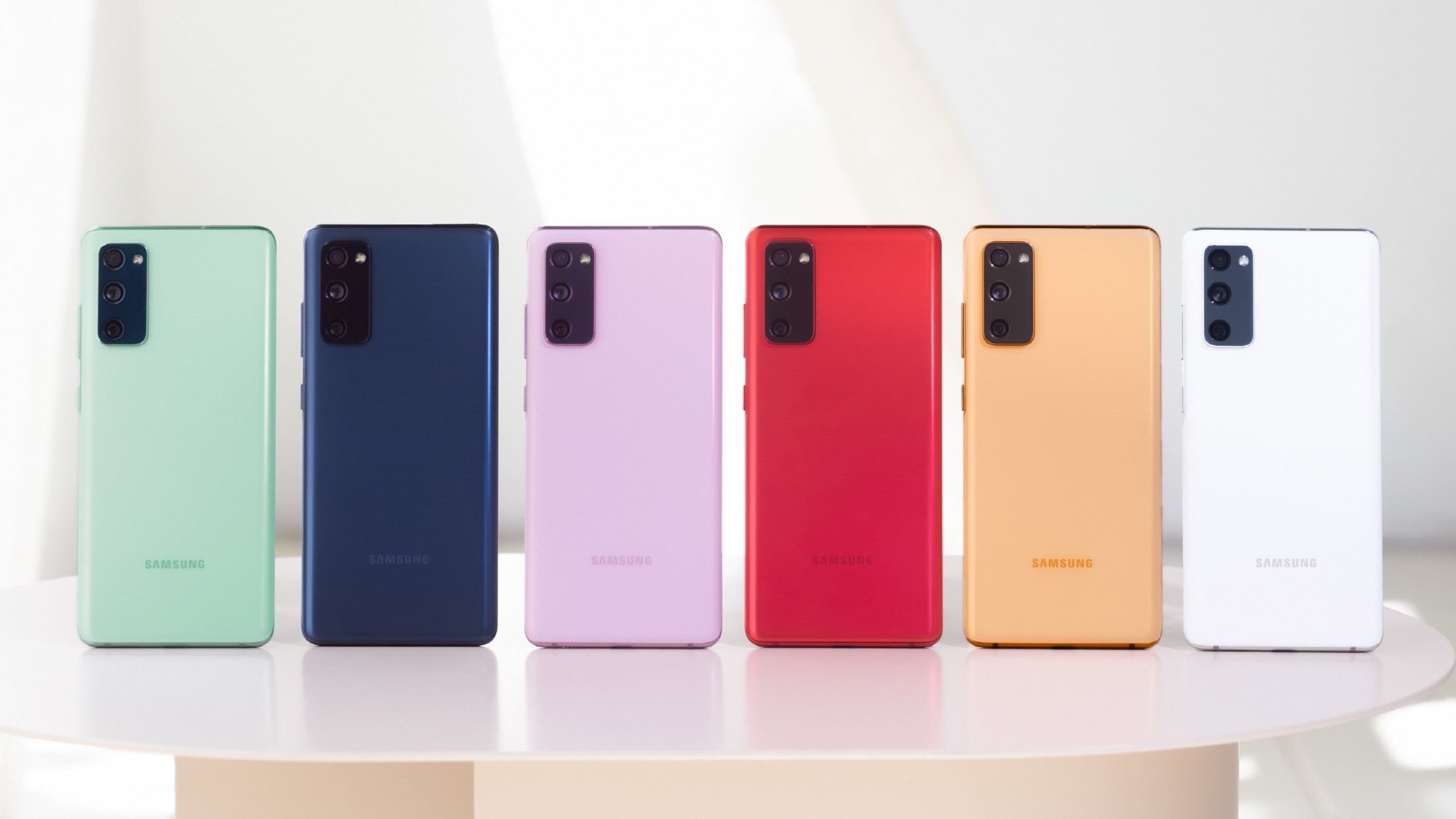
One improvement Samsung has made with the newer phone is that it’s more compact than the Galaxy S20 FE. At 155.7 x 74.5 x 7.9mm it’s just as tall and wide, but half a millimeter thinner. With a weight of 177g, it’s a not inconsiderable 13g lighter too.
There’s a more limited selection of colors available with the Galaxy S21 FE, however. You get just White, Graphite (black), Lavender (pink), and Olive (green). Contrastingly, the Galaxy S20 FE comes in Cloud Lavender (pink), Cloud Orange (pale orange), Cloud Red (red), Cloud Mint (blueish-green), Cloud White (white) and Cloud Navy (dark blue).
Display
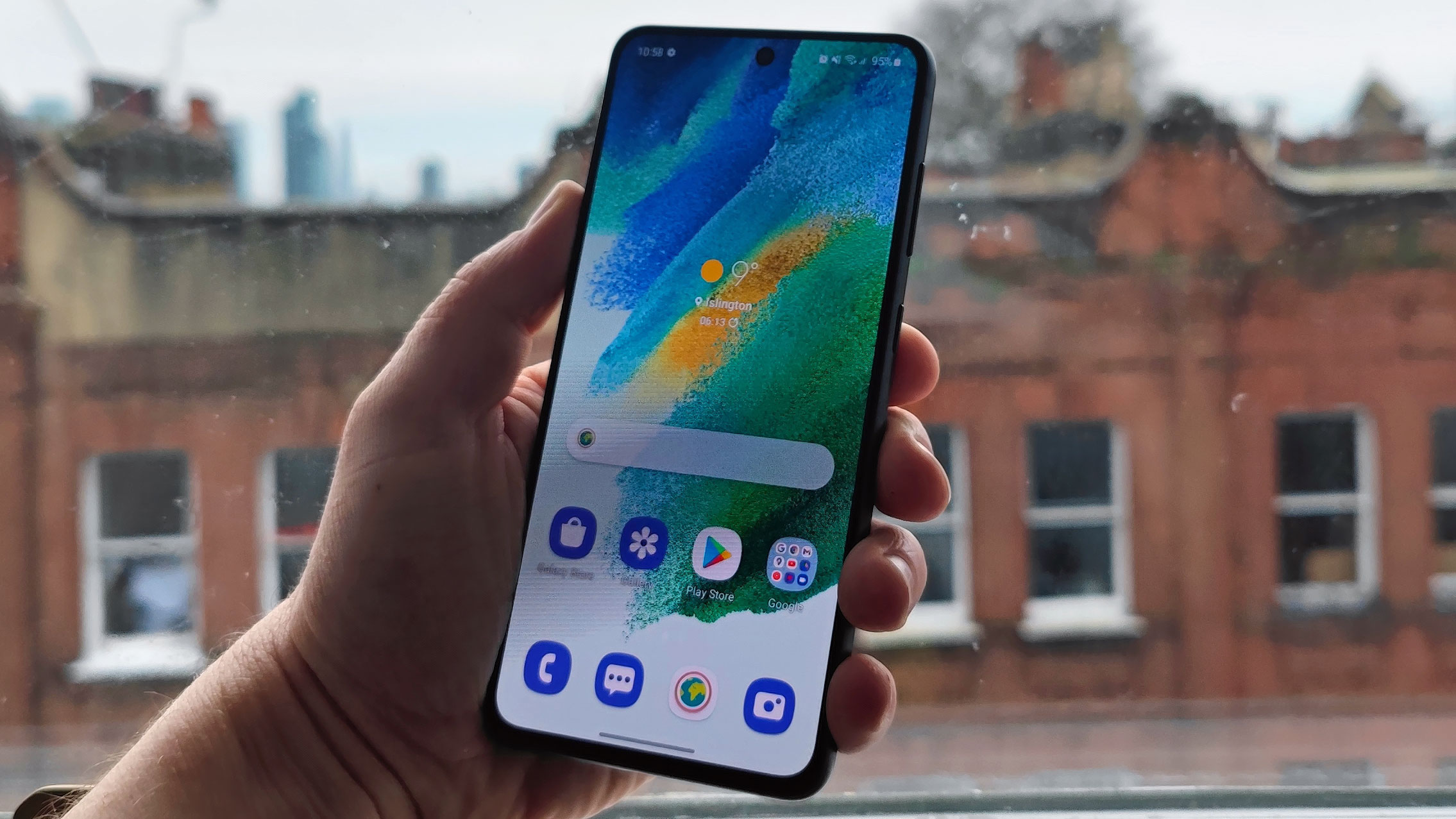
With a 6.4-inch screen, the Samsung Galaxy S21 FE comes in with a fractionally smaller viewing area than the 6.5-inch Samsung Galaxy S20 FE.
Both have vibrant Dynamic AMOLED displays with fluid 120Hz refresh rates - and you can trust that a Samsung phone is going to come up with the goods in terms of screen quality.
We’ve got no issues here either way. Colors, contrast, and brightness are all on point, and both screens make video content and games sing.
From a design viewpoint, both have a hole-punch selfie notch in the top-center of the display, too. Both screens are also flat.
One clear improvement with the Galaxy S21 FE display is its utilization of Gorilla Glass Victus, to grant it extra protection. The Galaxy S20 FE uses the older, weaker Gorilla Glass 3.
Camera
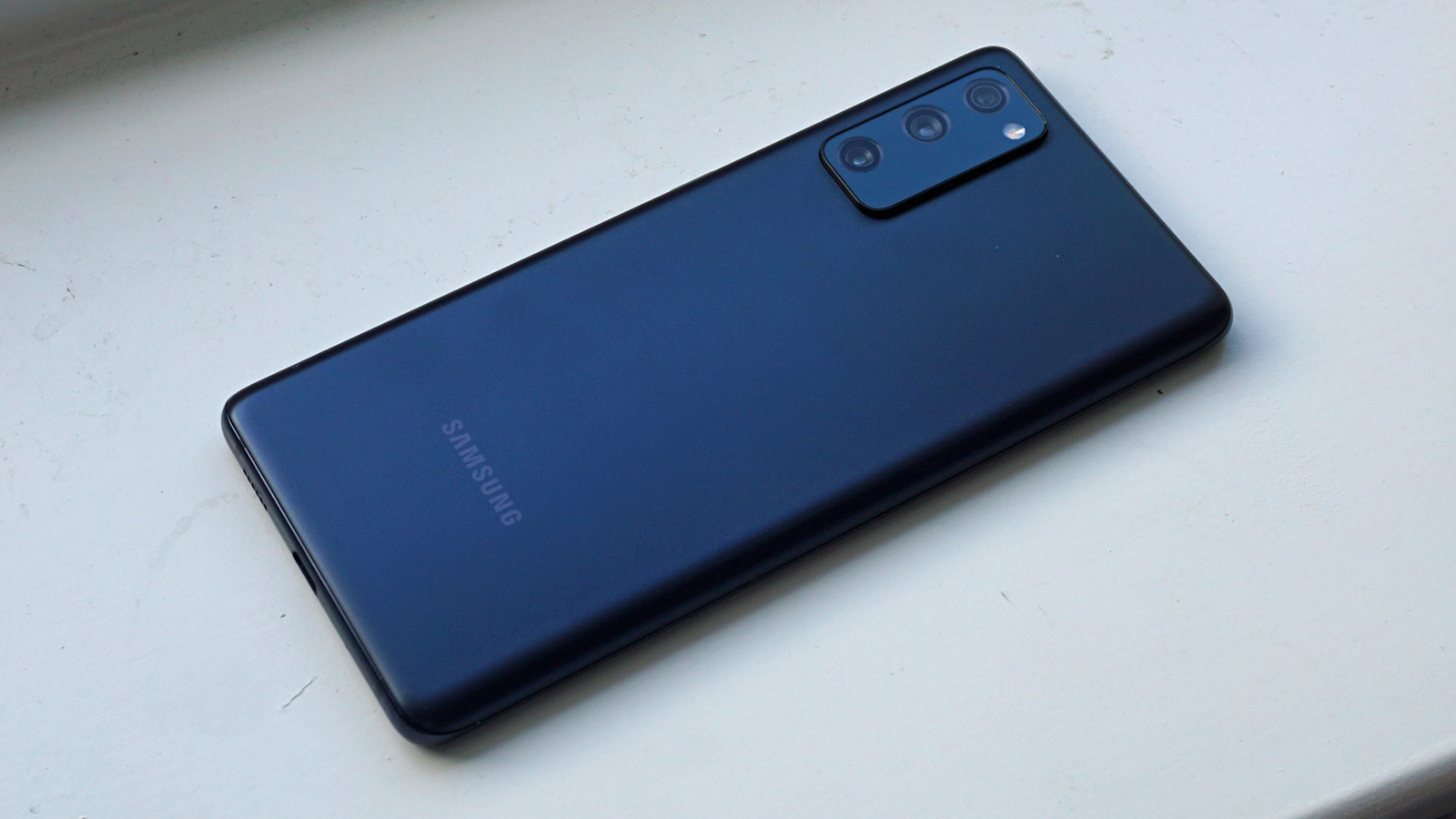
The Galaxy S21 FE’s camera set-up is essentially the same as that of the S21 and S21 Plus, except for a weaker telephoto element. The Galaxy S20 FE camera system, for its part, is very similar to the Galaxy S20 range.
This might appear to grant a clear advantage to the newer phone. However, given that the Galaxy S21 range’s camera hardware went practically unchanged from the Galaxy S20 series, it’s not such a leap.
Both FE systems utilize a 12MP main camera sensor, an 8MP 1.1x telephoto, and a 12MP 123-degree ultra-wide. They’re very similar indeed.
Neither phone gets the 64MP telephoto of their more expensive brothers, which is the main weakness here. Both phones have 32MP selfie cameras too.
Any enhancements here come from the bump up in image processing power from the newer SoC, as well as any tweaks made to Samsung’s algorithms. Essentially, though, both camera systems capture vivid, bright, arguably oversaturated shots in a variety of conditions.
Another strength both cameras systems have is that they maintain a consistent tone across all three sensors. The same can’t be said for all smartphone camera systems, regardless of price.
Both benefit from Samsung’s software tricks, including Single Take, which captures short 5 to 15-second snippets and selects the best stills and video footage from it. Dual Recording allows you to record video on a rear and front camera simultaneously.
On the video front, both phones can capture 4K video at 60fps on the rear and the front.
Specs and performance
Perhaps the clearest advantage for the Samsung Galaxy S21 FE over the Galaxy S20 FE comes with performance.
Unsurprisingly, the newer phone has a newer chip in the Snapdragon 888. The Galaxy S20 FE makes do with the previous generation’s Snapdragon 865 (or the equivalent Exynos 990 in 4G-only models).
What should be a source of triumph for the newer phone falls a little flat, however, and it all comes down to timing. At the time of writing, the Samsung Galaxy S22 with its Snapdragon 8 Gen 1 is right around the corner, not to mention a whole heap of direct rivals.
The Galaxy S21 FE may be more advanced than the Galaxy S20 FE, but only the latter was fast for its time.
Both phones offer either 8 or 12GB of RAM, and 128 or 256GB of internal storage. One outright win for the Galaxy S20 FE is that it also includes a microSD slot for expansion purposes, unlike the Galaxy S21 FE.
Still, there’s no denying that the Galaxy S21 FE is the faster phone of the two. More importantly, it’ll stay feeling faster for longer, as it’ll receive more ongoing support from Samsung.
Also in the Galaxy S21 FE’s favor is the fact that it’s 5G right across the world. As already mentioned, the Galaxy S20 FE came with 4G variants in certain countries.
Battery
Both the Samsung Galaxy S21 FE and the Galaxy S20 FE feature 4500mAh batteries. That’s fairly standard for a phone of this type, but we found the stamina lacking in both cases.
While we could get to the end of a full day of moderate usage with both phones, we tended to limp across the line. More intense usage would guarantee the need for a top up before bed time.
Samsung’s impressive suite of battery saver modes may well be called upon more often than is ideal if you opt for either of these phones.
The charging provisions are equally underwhelming. Both phones support a mere 25W charging when rivals are offering 65W and beyond. You don’t get charging bricks in the boxes, either.
Both phones support 15W wireless charging and reverse wireless charging, however, which is always welcome.
Takeaway
These are two very similar smartphones, with comparable designs, displays, and camera systems.
The Samsung Galaxy S21 FE has the edge when it comes to raw performance, but there’s still a sense of disappointment given how late the phone came to market. It’s going to seem a little outdated very quickly indeed, whereas the Galaxy S20 FE was competitive with its mid-range peers for a considerable spell of time.
That’s the overriding feeling we’re left with here. Objectively speaking, the Galaxy S21 FE is the better phone of the two, but its legacy is much less secure than the Galaxy S20 FE’s. It won’t be remembered as fondly by the ‘fans’ that gave both phones their FE monikers, that’s for sure.
What’s more, with the Galaxy S20 FE now going for hundreds of dollars/pounds less than the Galaxy S21 FE, it might just be the better buy - at least until its shiny replacement gets a hefty discount.








